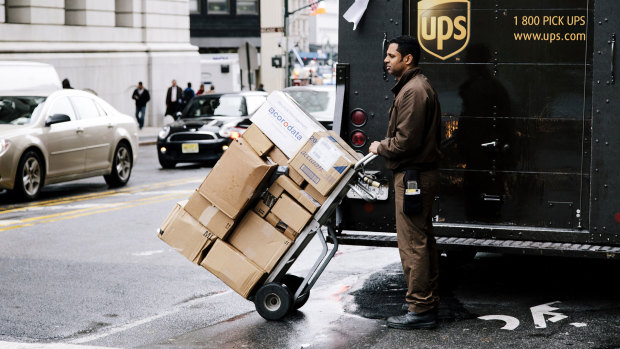
If UPS and the Teamsters union do not reach an agreement in the next week, more than 340,000 UPS workers will go on strike starting Aug. 1. If it does occur, the strike could "become one of the costliest in at least a century."
A report from Anderson Economic Group estimated that a 10-day UPS strike could negatively impact the U.S. economy by more than $7 billion, a number that would rise significantly if the strike lingered.
DON'T MISS: A UPS Strike Looms; Here's Why Target, Other Big Retailers Will Be Fine
The strike, AEG's CEO Patrick Anderson said, poses "significant and lasting harm for small businesses, household workers, sole practitioners, and online retailers across the country.”
Beyond resulting in missing packages, a strike here could delay the delivery of emergency medical supplies, which could have a severe impact to those in need of medical help.
Why UPS Workers Are Potentially Striking
The Teamsters union is fighting for a handful of specific gains. It is seeking a new five-year contract that will guarantee better pay for full and part-time workers alike, as well as a greater number of full-time jobs. The union is also hoping to secure certain safety considerations, namely the installation of air conditioning in UPS trucks.
Part-time UPS workers start at an hourly rate of $16.20, according to UPS. After 30 days, they are eligible for a bump to that hourly rate, with UPS saying most part-timers average $20 an hour after a month on the job.
For the same job, full-timers average salaries of $95,000 or more, which equates to an hourly wage of about $45. Around 60% of UPS' workforce is made up of part-time employees.
The median UPS worker made $52,000 in 2022, according to an SEC filing. The company's CEO, Carol Tomé, made $18.9 million, down a bit from the $27 million she made in 2021.
UPS agreed earlier in the month to get rid of the system that paid full-time drivers a higher hourly wage than part-timers and said it would install air conditioners in more trucks. But Teamsters is not yet satisfied.
"We are prepared to increase our industry-leading pay and benefits, but need to work quickly to finalize a fair deal that provides certainty for our customers, our employees and businesses across the country," UPS said in a statement July 19.
How It Will Impact You
UPS is the largest delivery service in the world by revenue. It delivers 22 million packages every day. And the other delivery options -- FedEx, USPS -- are unlikely to be able to absorb the full extent of this sudden increase in volume.
UPS also still handles some Amazon packages, and while that amount has been dropping as Amazon continues to invest in its own logistics empire, it hasn't dropped to zero -- which means these packages will be affected, too.
Experts in supply chain have predicted that, should a strike go through, deliveries will get lost as delays continue to back up and disrupt the system.
USPS did, however, tell CNBC that it is ready to handle the influx.
Data from Ship Matrix estimates that USPS has the capacity to absorb an additional 30 million packages per day.
FedEx said July 6 that it is "protecting capacity and service for existing customers." The shipper urged people who are planning to shift volume to FedEx to do so "now."
Teamsters President Sean O'Brien told CNN over the weekend that 95% of the contract is negotiated, "now we're down to economics."
If those economics don't work out, "UPS Teamsters are demanding the strongest possible contract or are prepared to strike — with rank-and-file members authorizing a strike by 97 percent."
Action Alerts PLUS offers expert portfolio guidance to help you make informed investing decisions. Sign up now.







